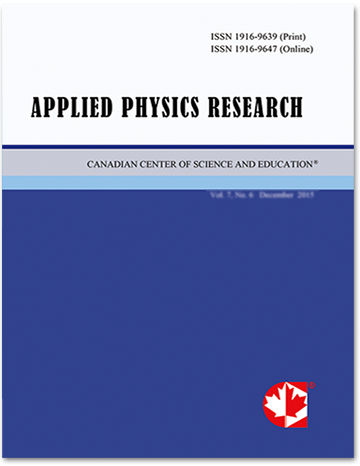Evaluating the Thermal Impact of Gas Flaring in Kokori, Southern Nigeria
- Ochuko Anomohanran
Abstract
The purpose of this survey is to evaluate the thermal impact of gas flaring in Kokori, Nigeria. This was carried out by measuring the temperature of the study area as a function of distance from the gas flare using a Jumbo digital thermometer. The average daily temperature of Kokori and the surrounding communities was also determined. Result showed that the temperature with respect to distance from the gas flare decreases by a factor of 0.06 °C/m and 0.012 °C/m for both the rainy and the dry seasons respectively. Result also showed that the average difference between the temperature in the gas flaring community and the neighbouring communities is 1.54 °C for the rainy season and 2.70 °C for the dry season. Analysis of the result from this study revealed that the study location has a higher background temperature than the neighbouring communities. This suggests that the study location is thermally affected by the flaring of gas in the area. It is suggested that the flaring location in all oil and gas installations should be located very far from residential communities, while the government is called upon to urgently stop this menace called gas flaring in the country.
- Full Text:
 PDF
PDF
- DOI:10.5539/apr.v7n1p78
Journal Metrics
Google-based Impact Factor (2017): 3.90
h-index (November 2017): 17
i10-index (November 2017): 33
h5-index (November 2017): 12
h5-median (November 2017): 19
Index
- Bibliography and Index of Geology
- Civil Engineering Abstracts
- CNKI Scholar
- CrossRef
- EBSCOhost
- Excellence in Research for Australia (ERA)
- Google Scholar
- Infotrieve
- LOCKSS
- NewJour
- Open J-Gate
- PKP Open Archives Harvester
- SHERPA/RoMEO
- Standard Periodical Directory
- Ulrich's
- Universe Digital Library
- WorldCat
Contact
- William ChenEditorial Assistant
- apr@ccsenet.org
